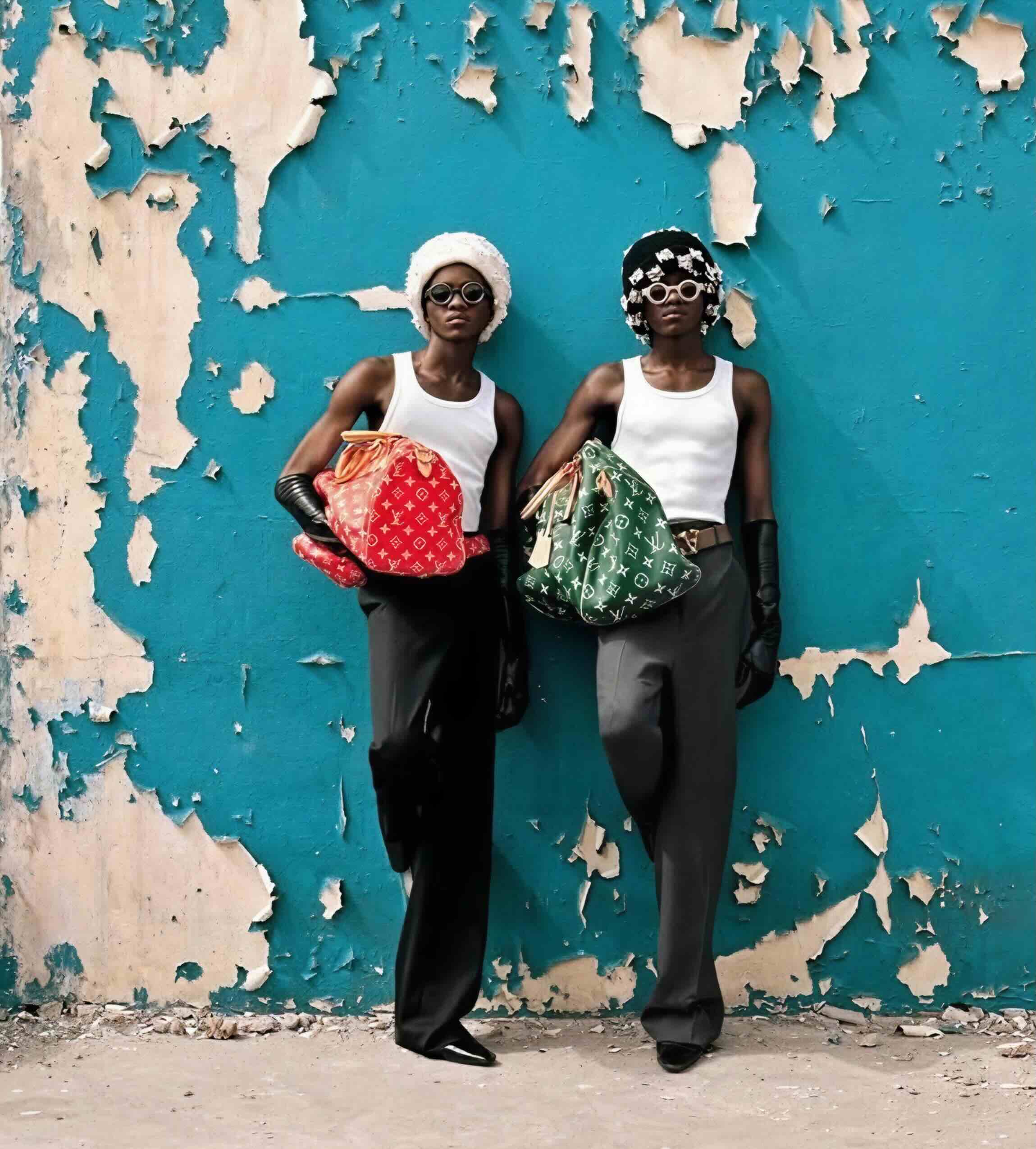
From Itutu to internet irony, the word “cool” has traveled from Black resistance to algorithmic performance. Now, in an age where sincerity is being sold back to us, what does rebellion even look like?
From Itutu to internet irony, the word “cool” has traveled from Black resistance to algorithmic performance. Now, in an age where sincerity is being sold back to us, what does rebellion even look like?
“Cool” used to mean composure — a calmness that said more than words could. Now it means content. Everyone’s performing irony, chasing aesthetics, and posting sincerity on purpose.
The world is asking if cool is dead, with essays like Dazed’s Death of Cool and endless discourse about whether irony has finally lost its edge. But maybe cool didn’t die naturally. Maybe it was overexposed — drained by algorithms, branded by corporations, and flattened by the speed of digital life. And while the West debates what comes after, maybe the more interesting question is: what does “post-cool” look like from here, in Lagos, in Nigeria, in a generation trying to stay human in the noise?
Before “cool” became a posture or a product, it was philosophy.
Its earliest modern expression came from West African culture, particularly the Yoruba idea of Itutu — composure, quiet strength, and grace under pressure. Art historian Robert Farris Thompson described Itutu as “beauty of inner calm,” a quality embodied by artists, dancers, and priests alike. It wasn’t performance — it was power contained.
When Africans carried this sensibility into the diaspora, it survived in new forms: the body language of jazz musicians, the poise of protest, the subtle defiance of being unshaken in public. By the 1940s, Lester Young and Miles Davis had made “cool” both art and armor. Davis’ Birth of the Cool (1949–50) captured what it meant to have presence without explanation — dignity in rhythm. As cultural historian Joel Dinerstein later wrote, cool became “a rebellion without rhetoric” — expression as resistance. That lineage matters. Cool began as composure against chaos.
Over time, cool was derailed by capitalism. Detached from its African spiritual roots and stripped of its politics, it became a look — a commodity. By the 2000s, “cool” was no longer a philosophy; it was a marketing strategy. Subculture became aesthetic. Rebellion became collaboration. What once meant control now meant clout. As Dazed reported in The Death of Cool (2024), the “cool-to-commodified” cycle moves so fast that trends collapse before they mean anything. Social media has erased the distance between authenticity and advertisement — everything feels performative by default. And as irony took over, sincerity became the new rebellion — until sincerity itself got sold back to us in campaigns about “purpose,” “community,” and “care.”
Writers like Edmond Lau describe this as the irony–sincerity cycle, a pendulum that swings between detachment and earnestness. But online, that pendulum broke. We no longer move between irony and sincerity; we experience both at once. In global youth culture, especially on Nigerian internet, irony functions as both defense and deflection.
It’s how we process chaos. Memes about Infrastructure, inflation, or corruption mask frustration with humor. Detachment becomes self-preservation. But irony also numbs. The more we joke, the less we feel. We’ve created a culture where the only way to say something true is to wrap it in sarcasm. Globally, this manifests in what critics call “chaos culture.” From Balenciaga’s luxury “trash bags” to fast-food brand collabs and meme merchandise, the internet has monetized absurdity. Even rebellion now feels pre-approved. As ZINE magazine put it, “You can’t satirize something that’s already satirizing itself.”
The return of sincerity sounds hopeful — “authenticity,” “intention,” “vulnerability.” But sincerity has already been commodified too. The minute care becomes content, it stops being care.
Brands, influencers, and even artists have learned to package sincerity into aesthetics: raw captions, unfiltered tears, “soft life” minimalism — all of it is part of the same attention economy. That doesn’t mean sincerity is meaningless. It just means we need to rethink what it looks like. Sincerity, if it’s to survive, has to move underground — hidden away from algorithmic reward.
In Nigeria, cool has never been about detachment. It’s always been about rhythm — grace inside disorder. Lagos, in particular, has its own form of composure: what you might call everyday poise. It’s not irony, it’s endurance. It’s surviving chaos with a clean shirt and a joke.
From WAFFLESNCREAM’s skate community, Severe Nature’s street collectives, Group Therapy’s love for Rave culture, and many more…Nigerian youth culture continues to turn composure into creation. Even within burnout and economic instability, there’s a refusal to collapse. That’s not irony. That’s resilience. Our cool never needed revival because it never left the streets. But even here, the pressure to stay visible — to post, to perform, to “be seen” — risks flattening that essence. What was once grace under pressure risks turning into another aesthetic loop.
If “cool” began as a form of quiet resistance, then maybe the next rebellion is even quieter. Not inaction — intention. Not disappearance — discipline. We may be entering a post-cool age: one that prizes opacity over visibility, conviction over trend, and depth over virality.
Yoruba philosophy has already given us the blueprint. Itutu — calm as composure, strength without spectacle — might just be the next creative revolution. Not a return to the past, but a remembrance of essence.
The West may have declared cool dead, but from where we stand, it just evolved. Cool isn’t irony. It isn’t sincerity. It’s balance. In a world addicted to noise, the new rebellion might simply be learning how to stay still — and mean it.
Comments